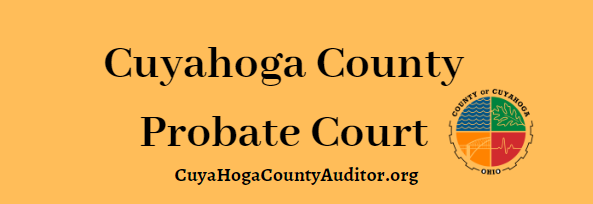The Cuyahoga County Probate Court stands as a vital institution within the legal framework of Ohio, providing essential services to its residents. Established with a rich history, this court plays a pivotal role in various aspects of legal proceedings, from estate administration to guardianship matters. Let’s delve deeper into the significance and operations of the Cuyahoga County Probate Court.
Cuyahoga County Probate Court
The roots of the Cuyahoga County Probate Court trace back to the early years of the county’s establishment. Founded to handle matters related to estates, wills, and guardianships, the court has evolved significantly over time, adapting to changing legal landscapes and societal needs.
Functions and Responsibilities
Estate Administration
One of the primary functions of the Cuyahoga County Probate Court is overseeing the administration of estates. This involves validating wills, appointing executors or administrators, and ensuring proper distribution of assets according to legal provisions.
Guardianship
The court also plays a crucial role in appointing guardians for minors or incapacitated adults who are unable to make decisions for themselves. This includes managing their financial affairs, healthcare decisions, and overall well-being.
Marriage Licenses
Individuals seeking to get married in Cuyahoga County must obtain a marriage license from the probate court. The court reviews applications, verifies eligibility, and issues licenses in compliance with state laws.
Birth and Death Records
The probate court maintains records of births and deaths that occur within Cuyahoga County. These records serve as vital documents for various legal and administrative purposes, including obtaining official identification and establishing inheritance rights.
Importance of Cuyahoga County Probate Court
The Cuyahoga County Probate Court holds immense significance within the local community. It ensures the orderly transfer of assets upon death, protects the interests of vulnerable individuals through guardianship proceedings, and facilitates the solemnization of marriages, among other essential functions.
Services Offered
Apart from its core responsibilities, the probate court offers a range of services to the public, including notary services, marriage counseling, and educational programs on estate planning and probate procedures.
How to Access Services
Individuals can access the services of the Cuyahoga County Probate Court by visiting its physical location, submitting documents electronically, or contacting the court’s staff via phone or email. The court strives to provide efficient and accessible services to all.
Probate Court Judges and Staff
The probate court is led by experienced judges and supported by dedicated staff members who ensure the smooth functioning of day-to-day operations. Their expertise and commitment contribute significantly to the court’s effectiveness and reliability.
Legal Resources and Support
The court provides access to legal resources and support services for individuals navigating probate-related matters. This includes informational materials, referrals to legal aid organizations, and guidance on procedural requirements.
Community Impact
The activities of the Cuyahoga County Probate Court extend beyond the courtroom, positively impacting the community at large. By promoting legal awareness, safeguarding individual rights, and fostering family stability, the court plays a vital role in enhancing the overall well-being of residents.
Notable Cases
Over the years, the Cuyahoga County Probate Court has presided over several notable cases that have garnered public attention and shaped legal precedent in various areas, from estate disputes to guardianship reforms.
Challenges Faced
Despite its essential role, the probate court faces challenges such as resource constraints, increasing caseloads, and evolving legal complexities. Addressing these challenges requires ongoing collaboration and innovation within the judicial system.
Future Outlook
Looking ahead, the Cuyahoga County Probate Court is committed to adapting to emerging trends and meeting the evolving needs of the community. Through continued modernization efforts and proactive initiatives, the court aims to enhance efficiency, accessibility, and fairness in its operations.
Conclusion
In conclusion, the Cuyahoga County Probate Court stands as a cornerstone of the local legal system, providing invaluable services and upholding the principles of justice and equity. From estate administration to guardianship proceedings, the court plays a vital role in safeguarding individual rights and promoting the well-being of the community.
Cuyahoga County Probate Court FAQs
-
What types of cases does the Cuyahoga County Probate Court handle?
The probate court handles cases related to estates, guardianships, adoptions, marriage licenses, and birth/death records.
-
How do I obtain a marriage license from the probate court?
To obtain a marriage license, you must visit the probate court’s office, complete the necessary paperwork, and pay the required fee.
-
Can I access birth and death records through the probate court?
Yes, the probate court maintains records of births and deaths that occur within Cuyahoga County, which can be accessed for legal and administrative purposes.
-
What is the role of a guardian ad litem in probate court proceedings?
A guardian ad litem is appointed by the court to represent the interests of minor children or incapacitated adults in guardianship or custody cases.
-
How can I contact the Cuyahoga County Probate Court?
You can contact the probate court by phone, email, or visiting its physical location during business hours.
